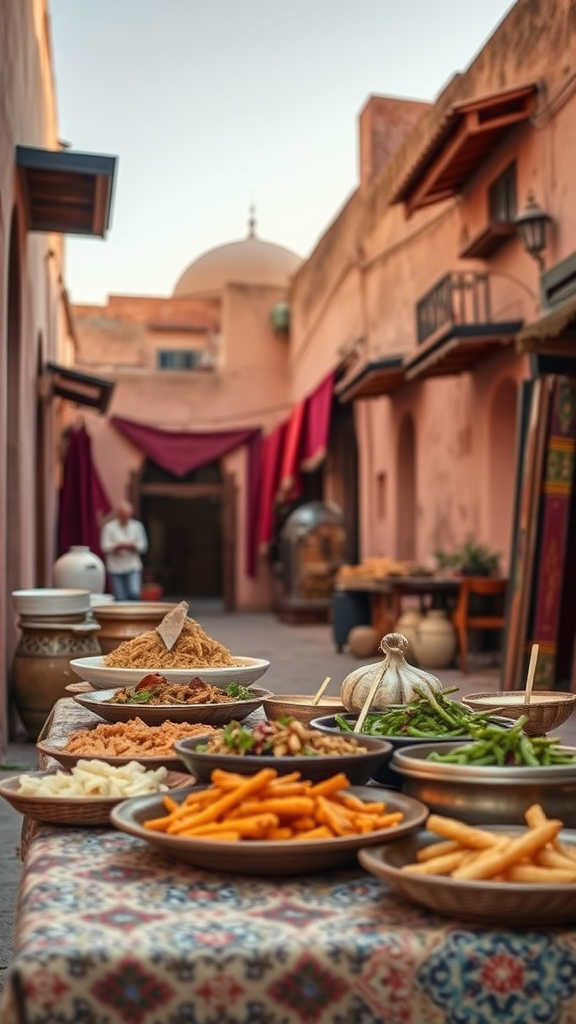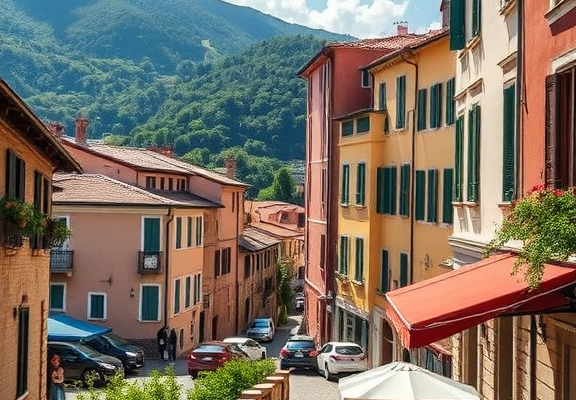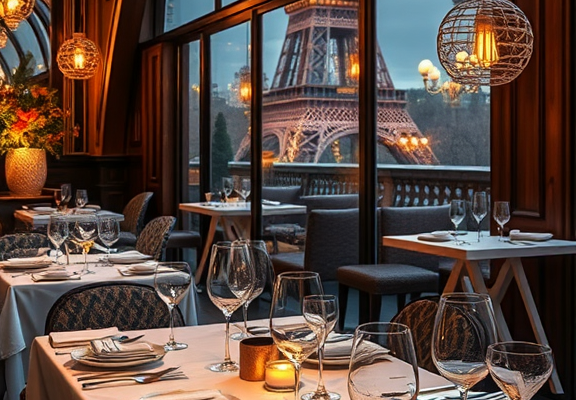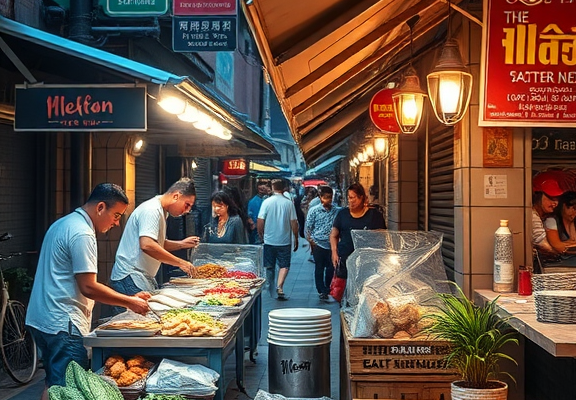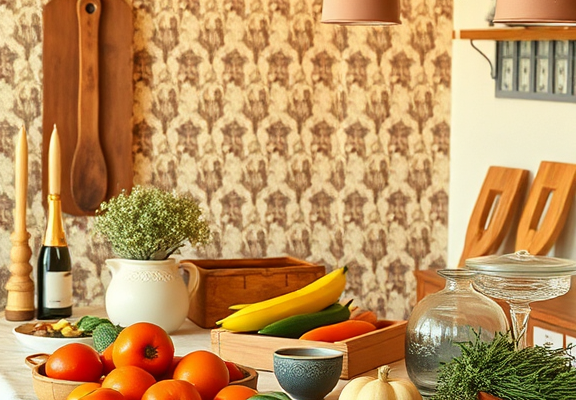Exploring Cultural Food Experiences in Morocco: A Culinary Journey Through Tradition
Morocco is a land of vibrant colors, rich traditions, and deep cultural heritage, and one of the best ways to experience this enchanting country is through its food. Each dish tells a story, and each meal is a celebration of life, community, and history. From bustling medinas to serene desert oases, food in Morocco reflects its diverse influences. You are invited to explore a culinary journey that showcases the heart and soul of Moroccan culture.
Thank you for reading this post, don't forget to subscribe!Traditional Moroccan Dishes
Moroccan cuisine is a delightful blend of flavors and aromas, influenced by Berber, Arab, and Mediterranean traditions. When visiting, you cannot miss these iconic dishes:
- Couscous: Often considered the national dish, couscous is a staple made from steamed semolina. Traditionally served on Fridays, this versatile dish is often accompanied by a hearty vegetable stew or tender meat, spiced to perfection.
- Tagine: A traditional slow-cooked stew named after the earthenware pot it’s cooked in. You can find varied versions with lamb, chicken, or fish, combined with fruits, nuts, and aromatic spices like saffron and cumin.
- Bastilla: A unique savory pie that marries sweet and savory. It typically features pigeon or chicken, layered between crispy pastry and dusted with powdered sugar and cinnamon.
- Harira: This hearty soup is often enjoyed during Ramadan to break the fast. Harira combines tomatoes, lentils, chickpeas, and meat, making it both filling and nourishing.
- Mint Tea: Known as Moroccan whiskey, this sweetened, mint-infused green tea is a symbol of hospitality. Sharing a pot of mint tea is a traditional gesture of welcoming guests.
Food Markets: A Feast for the Senses
To truly immerse yourself in the flavors of Morocco, visit one of the many souks or food markets. The best places to experience vibrant market life include:
- Jemaa el-Fnaa in Marrakech: This iconic square transforms into a lively food market at dusk, with stalls serving up delicious grilled meats, fresh juices, and aromatic spices.
- Souk el Had in Agadir: Known for its extensive variety, this market offers everything from fresh produce to traditional Moroccan pastries.
- Chefchaouen’s Blue Market: Nestled in the picturesque blue city, this market has quaint stalls offering local delicacies, artisan cheeses, and homemade preserves.
Cooking Classes: Learn from the Locals
For those looking to deepen their culinary experience, take part in a cooking class. Many cities offer classes where you can learn to prepare traditional Moroccan dishes. This interactive experience allows you to:
- Explore local markets to select ingredients.
- Master essential cooking techniques unique to Moroccan cuisine.
- Enjoy the fruits of your labor with a communal meal.
Cooking classes provide not just culinary skills, but also an insight into Moroccan daily life and customs. You will find that food is often a means of connection, family, and friendship.
Special Dietary Traditions
Morocco is home to various dietary customs that reflect its rich cultural tapestry. For example, during Ramadan, iftar meals are communal, filled with a variety of shared dishes. Additionally, special events like weddings feature elaborate feasts that showcase the best of Moroccan culinary artistry, including multiple courses and sweets.
Street Food Adventures
If you crave authenticity, street food is the way to go. Vendors across Morocco offer an array of delectable bites. Be sure to try:
- Brochettes: Grilled skewers of marinated meat, often served with bread and spicy sauces.
- Seffa: A sweet dish made from steamed vermicelli sprinkled with powdered sugar and almonds.
- Mechoui: A whole roasted lamb that is often served at large gatherings.
The experience of sharing street food with locals will give you a taste of community and warmth that is at the heart of Moroccan culture.
As you embark on your culinary journey through Morocco, keep an open heart and mind. Every bite is a memory, and every dish is steeped in tradition. Whether you’re enjoying a meal with a local family, savoring delicacies from a street vendor, or learning to cook in a cozy kitchen, each experience adds a unique flavor to the rich tapestry of Moroccan life.
The Role of Moroccan Spices in Enhancing Cultural Identity and Cuisine
Morocco is a land bursting with color, history, and culture, and one of the standout features of its identity is its spices. The vibrant landscape of Moroccan cuisine is deeply interwoven with its diverse cultural roots, showcasing how spices play a pivotal role in enhancing not just culinary experiences but also national identity.
The use of spices in Morocco dates back centuries, influenced by ancient trade routes, interactions with various cultures, and the practices of local Berber communities. Moroccan spices are not just ingredients; they are symbols of tradition, storytelling, and community. Let’s take a closer look at several key spices that define Moroccan cuisine and their significance in expressing cultural identity.
Key Moroccan Spices
Here are some essential spices that form the backbone of Morrocan dishes:
- Cumin: Often used in tagines and spice blends, cumin lends a warm earthiness to dishes, reflecting the earthy tones of Morocco’s landscape.
- Coriander: This spice adds a citrusy flavor that brings freshness to many Moroccan salads and stews.
- Cinnamon: Commonly found in both savory and sweet dishes, cinnamon symbolizes the mingling of flavors representing Morocco’s diverse cultural influences.
- Turmeric: Known for its health benefits and stunning color, turmeric connects Moroccan cuisine with traditional healing practices.
- Saffron: This luxurious spice is often used in special dishes for celebrations, highlighting Moroccan hospitality and the importance of gathering around food.
Spices in Morocco do more than just flavor food; they foster connections and evoke memories. Families pass down spice blends from generation to generation, preserving not only recipes but also cultural heritage. For a Moroccan family, preparing a meal often becomes a communal activity that reinforces family ties, with each person contributing to the creation of a sumptuous dish.
The Ritual of Spices in Daily Life
In Morocco, the experience of cooking is often surrounded by a range of rituals that celebrate the culture. Spice markets, known as souks, are living museums of Moroccan history with stalls overflowing with colorful piles of spices. When you explore these bustling markets, you can see how important spices are to the daily lives of Moroccans.
Visitors to Morocco often find themselves immersed in both the sights and the scents of these vibrant marketplaces. The process of selecting the right spices is not left to chance; locals take their time to smell and feel, often asking for special blends known only to specific regions or families. This adds a personal touch that can be deeply meaningful.
Spices as a Reflection of Unity and Diversity
The diversity of spices found in Moroccan cuisine is a reflection of the country’s rich history. Each spice tells a story—of migration, trade, and the fusion of cultures. For instance, the introduction of chili peppers, which originally come from the Americas, demonstrates how Morocco has embraced global influences while maintaining its culinary traditions.
Festivals, such as the famous Fez Festival of World Sacred Music, often feature food stalls where local chefs showcase the art of spice blending. These events highlight how spices unite people from various backgrounds, fostering a sense of community while honoring individual cultural identities through shared meals.
The Global Influence of Moroccan Spices
As Moroccan cuisine gains popularity worldwide, so do its spices. Chefs around the globe incorporate Moroccan spices into their cooking, highlighting the cultural significance from a broader perspective. Dishes like harira, a traditional soup, and tagine, with its slow-cooked meats and vibrant vegetables, have become symbols of Moroccan hospitality, inviting food lovers to experience the essence of Morocco in their own kitchens.
By using Moroccan spices, individuals can connect with a culture that emphasizes community, tradition, and flavor. This culinary journey illustrates how Moroccan spices are not merely ingredients; they are a bridge linking generations and cultures together through the universal language of food.
Conclusion
Embarking on a culinary journey through Morocco unveils a vibrant tapestry of flavors, traditions, and stories that are deeply rooted in its culture. Each dish tells a story, connecting you to the country’s rich history and diverse communities. The Moroccan dining experience goes beyond mere sustenance; it is a celebration of life, family, and hospitality.
Spices play a pivotal role in shaping this culinary landscape, transforming simple ingredients into magical dishes that reflect the soul of Morocco. The unique blend of cumin, coriander, saffron, and harissa not only elevates the taste of each meal but also reinforces a sense of cultural identity. These ingredients are more than just flavor enhancers; they symbolize Morocco’s historical trade routes and cultural exchanges with other civilizations.
When you savor a plate of tagine or enjoy a cup of mint tea, you’re not just tasting food—you’re experiencing a piece of Moroccan heritage. The act of sharing meals fosters connections among families and friends, reinforcing bonds that are essential to Moroccan life. Culinary traditions are passed down through generations, preserving a sense of identity in a rapidly changing world.
Exploring cultural food experiences in Morocco invites you to understand the heart of this beautiful nation. It encourages you to take part in its age-old rituals, appreciate its artistry, and embrace the warmth of its people. Ultimately, the flavors of Morocco offer a profound appreciation for the power of food as a medium of culture, making it an unforgettable part of your travels.

